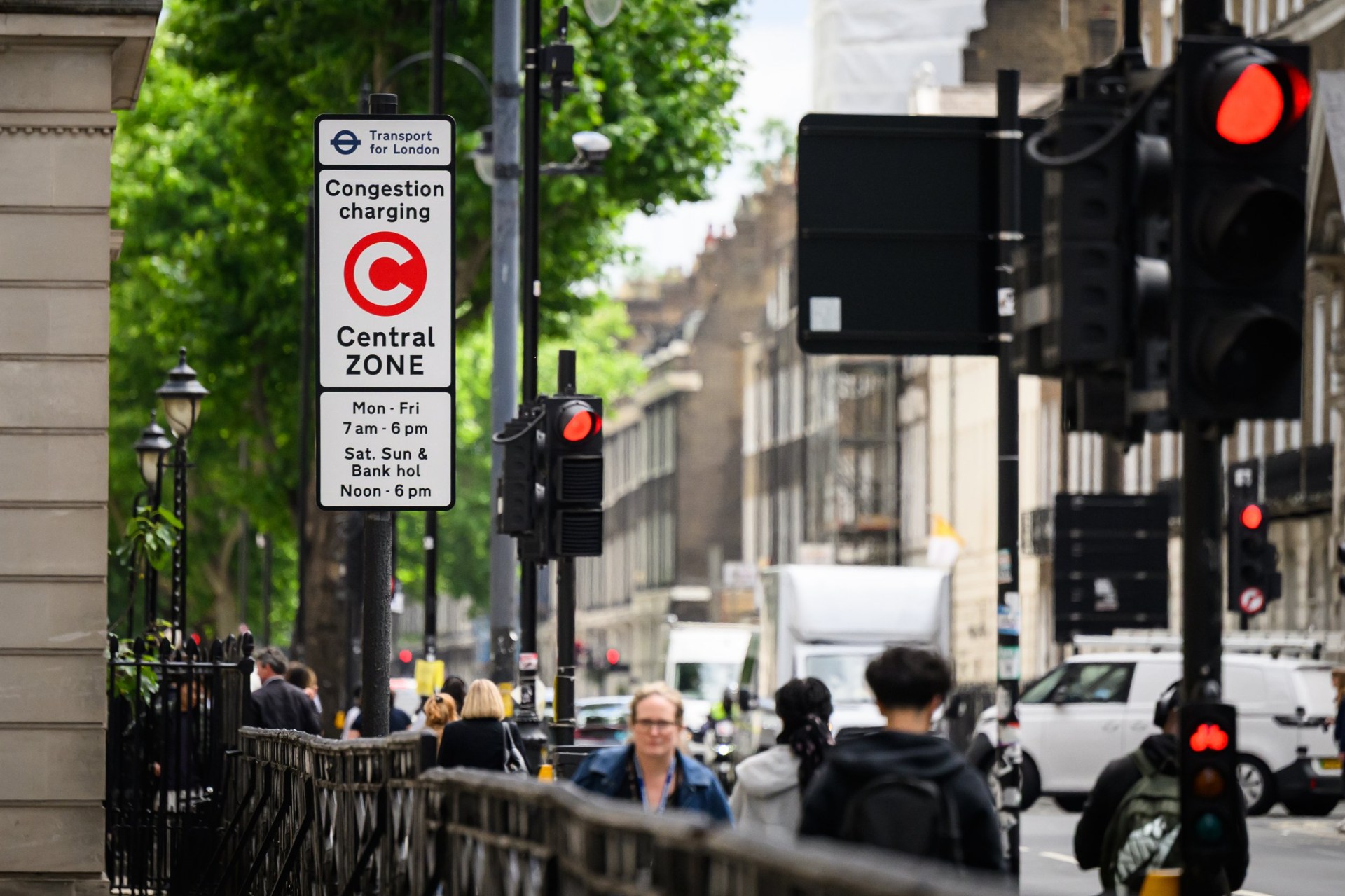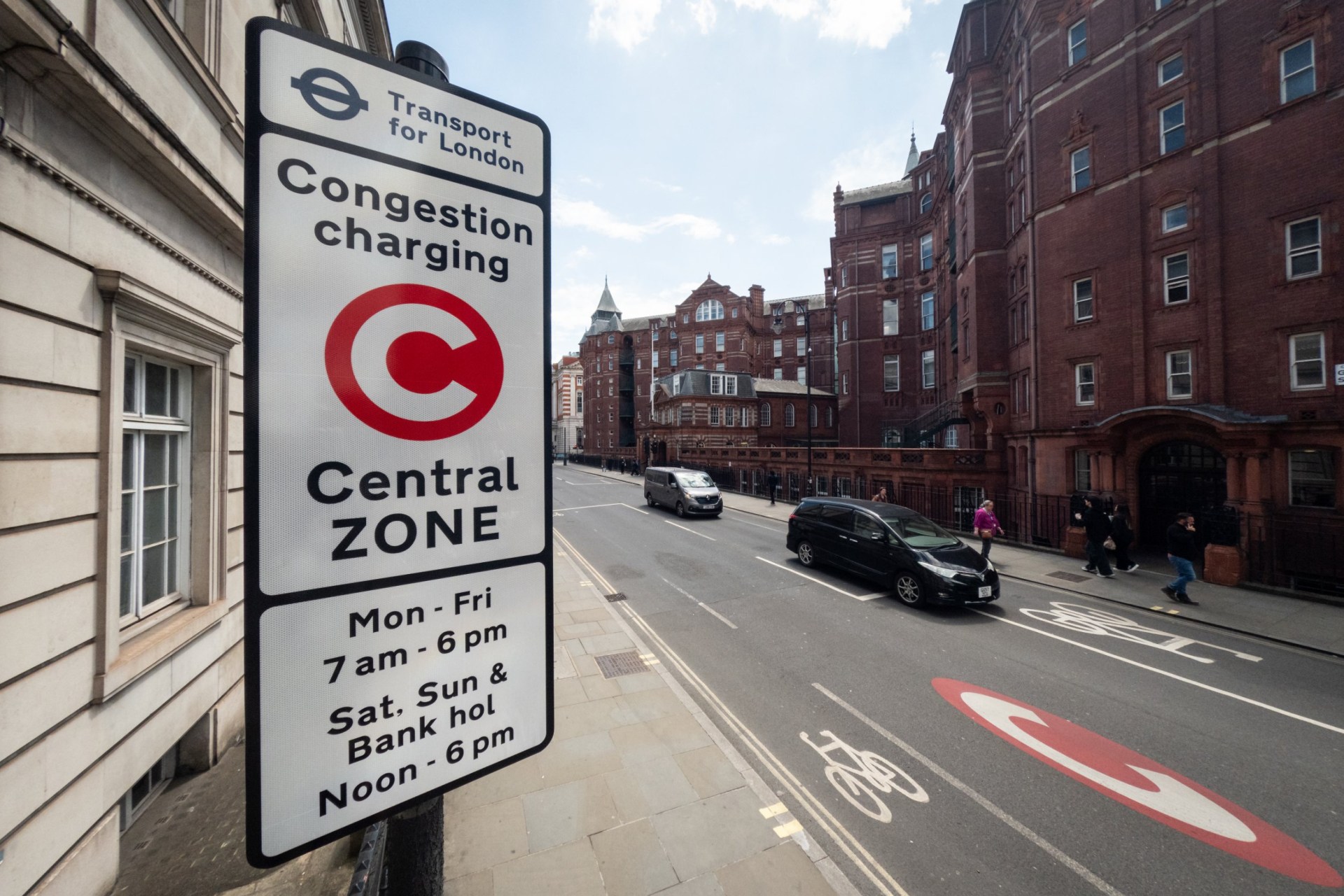London's Congestion Charge Set for Significant Changes, Including Fees for Electric Vehicles
London's iconic Congestion Charge is poised for a substantial shake-up, with a notable shift set to impact electric vehicle (EV) drivers who have, until now, enjoyed a full exemption. This move, designed to tackle worsening traffic and ensure the charge remains effective, has drawn criticism from various quarters, with some labelling it a "backward step" for the city's electrification goals.
Key Changes to the Congestion Charge:
Starting in January 2026, drivers of all vehicle types entering the Congestion Charge zone will face new daily fees. This includes those at the wheel of zero-emission electric cars, which have previously been exempt.
- Electric Vehicles: From January 2, 2026, EV drivers will be required to pay £13.50 per day to enter the zone. This marks a significant departure from the previous 100% discount offered under the Cleaner Vehicle Discount (CVD) scheme.
- Petrol and Diesel Vehicles: The daily fee for petrol and diesel cars will see an increase, rising from £15 to £18.
- Discount Opportunities: To encourage continued adoption of cleaner vehicles, a partial discount will still be available for EVs.
- Electric vans and lorries will receive a 50% discount.
- Electric cars will benefit from a 25% discount.
Future Discount Reductions:
The incentives for EVs are set to be further reduced in the coming years, signalling a phased approach to full integration into the charging system.
- From March 4, 2030:
- The discount for electric vans will be cut to 25%.
- The discount for electric cars will be reduced to 12.5%.
This means that driving an electric car within the congestion zone could eventually cost an estimated £3,000 per year, a figure that has raised concerns among EV owners and advocacy groups.
Why the Changes?
Transport for London (TfL) states that the increase in the Congestion Charge is a necessary measure to prevent a projected rise in daily vehicle numbers within the zone. Without these adjustments, it's estimated that around 2,200 extra cars could be on the roads each weekday, exacerbating existing congestion issues.
Sadiq Khan, the Mayor of London, emphasised the importance of keeping the city moving and supporting the economy. He acknowledged the success of the Congestion Charge since its inception but stressed the need to ensure it remains effective. "Sticking to the status quo would see around 2,200 more vehicles using the congestion charging zone on an average weekday next year," Khan stated. "We must support Londoners and businesses to use more sustainable travel, so I’m pleased that substantial incentives will remain in place for Londoners who switch to cleaner vehicles, as we work to build a greener and better London for everyone."

Criticism and Concerns:
Despite the Mayor's rationale, the decision has been met with significant opposition. Critics argue that these changes could undermine London's commitment to electrification and its progress towards net-zero targets. The move is seen by some as a disincentive for businesses and individuals who have invested in EVs, particularly those who rely on them for their livelihoods.
The Electric London Coalition, representing over 30 organisations, has called on City Hall to maintain driver confidence, especially in light of potential tax increases on mileage announced in the autumn budget.
Edmund King OBE, President of the AA, described the decision as a "backward step" that could negatively impact air quality in London. He highlighted findings from the AA UK EV Readiness Index, which suggest that many drivers are not yet fully prepared to switch to electric vehicles and still require incentives. "The Mayor needs to reconsider to continue to help more essential van and car journeys in the capital go electric," King urged.
The GMB Union also voiced strong disapproval. Steve Garelick from the union stated, "Rolling back the Cleaner Vehicle Discount is an affront to working Londoners who answered City Hall’s call to go electric. This decision risks undoing years of progress, which neither our city nor its workers can afford." He specifically pointed out the impact on couriers, private hire drivers, and key workers who are crucial to the city's functioning. "Private hire drivers already pay substantial costs to TfL and operators to work in London. It is deeply unfair to charge them even more for simply doing their job," Garelick added.
Broader Context of London's Transport Charges:
It's important to note that the Congestion Charge operates within a wider network of charges aimed at managing transport and emissions in the capital. These include:
- Ultra Low Emission Zone (ULEZ): Operates 24/7, targeting more polluting vehicles.
- Low Emission Zone (LEZ): Also operates 24/7, with specific standards for heavy diesel vehicles.
- Direct Vision Standard (DVS): For lorries over 12 tonnes, enhancing road safety.
- Blackwall and Silvertown Tunnel Charges: Applicable to crossings during specified hours.

EV Adoption and Future Outlook:
London has been grappling with severe traffic congestion, with data from traffic analyst Inrix ranking it as Europe's most gridlocked city. Concurrently, the adoption of EVs in Britain has been on an upward trend, with electric cars becoming more accessible and over a million currently on the roads. Projections suggest that up to 11 million UK motorists could be driving electric by 2030, supported by an expanding network of charging infrastructure.
The upcoming changes to the Congestion Charge represent a pivotal moment, balancing the need to manage traffic flow with the imperative to support the transition to cleaner transport. The full impact of these changes on driver behaviour and London's environmental goals remains to be seen.




No comments:
Post a Comment